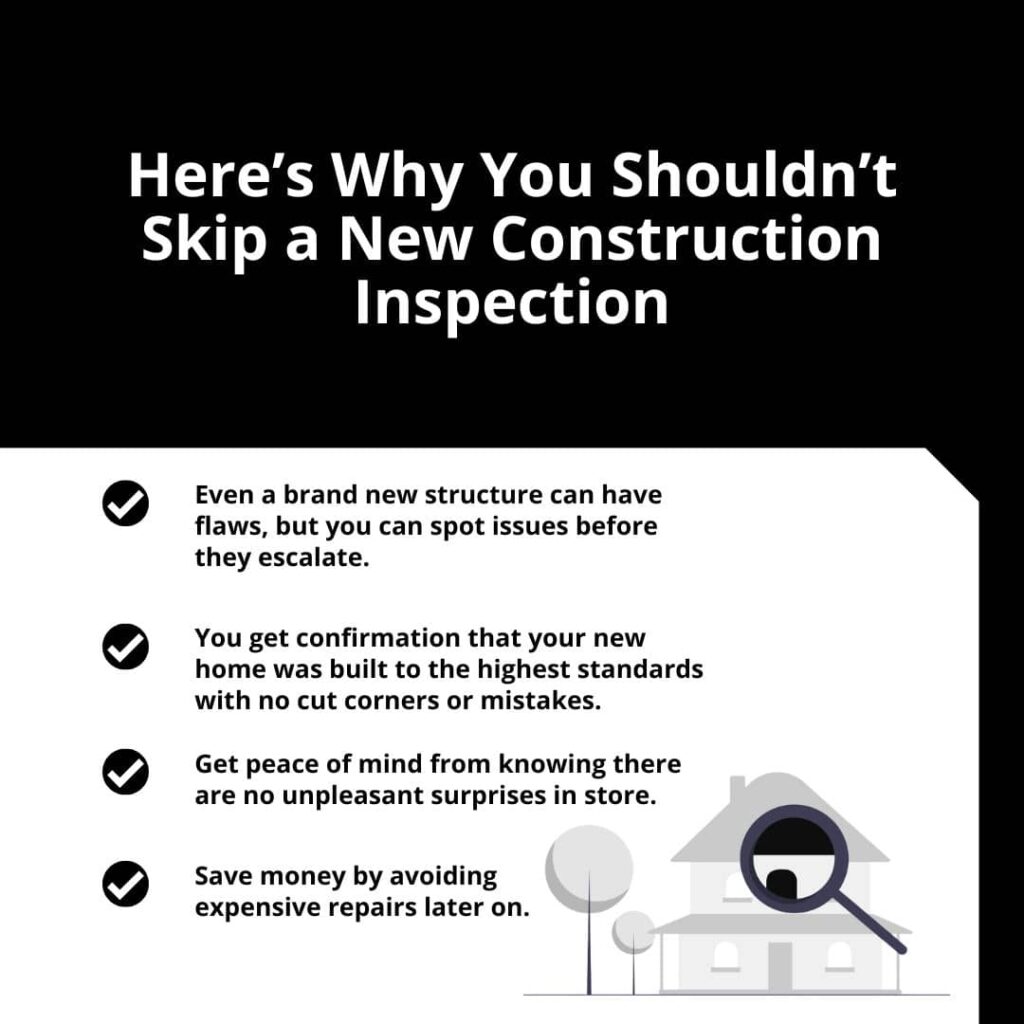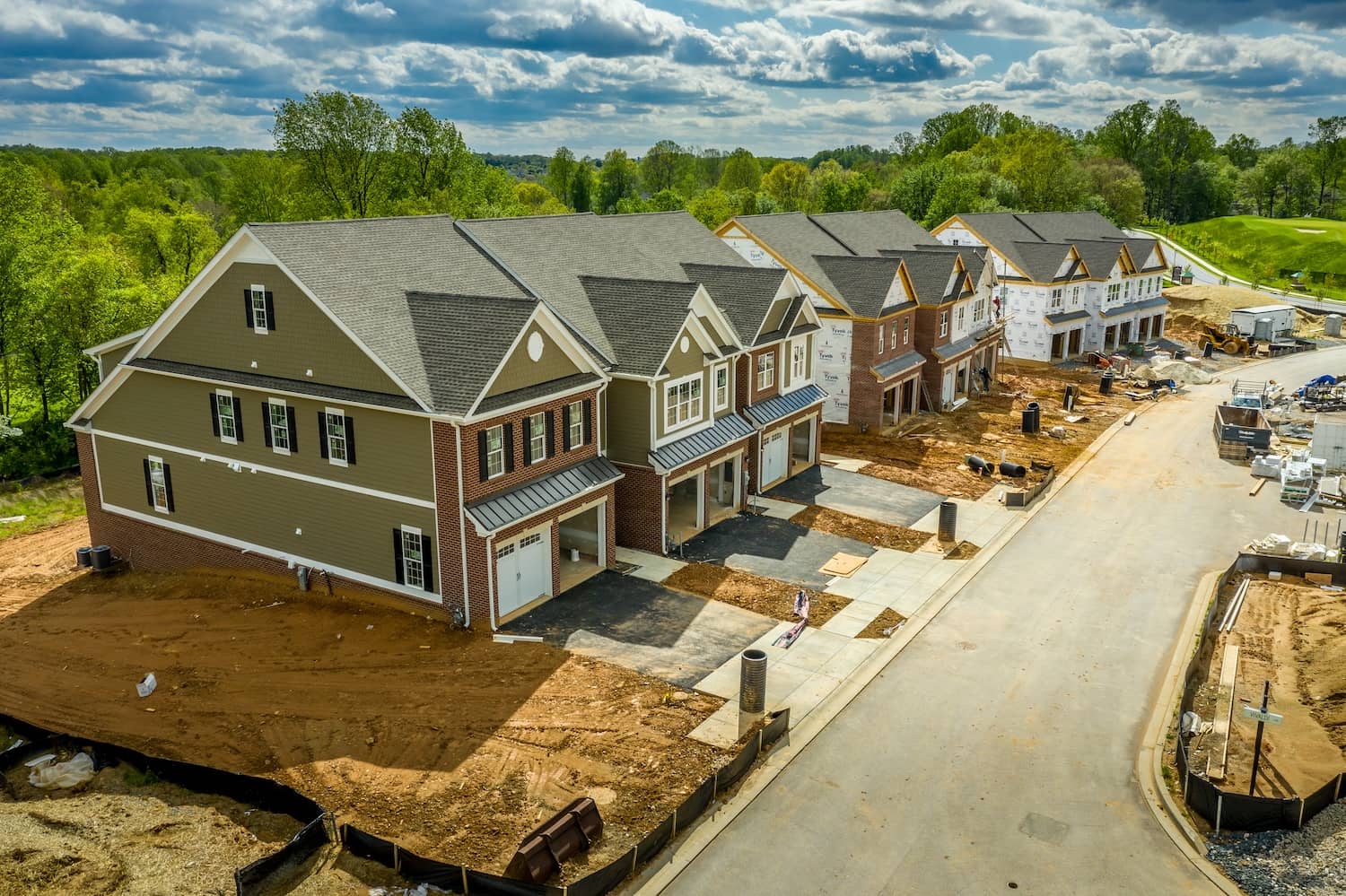In an ideal world, stepping into a brand-new home would feel like a fresh start, free of worries. But the truth is, new doesn’t always mean perfect, and even the most reputable builders can miss a detail or two. Those small oversights can turn into big headaches down the road, which is why an inspection is still critical before buying a new construction home.
Spotting any issues early means you can address them before they turn into big, expensive problems. That way, your dream home is safe and sound from the start, and ready for the next chapter.
Table of Contents
ToggleWhy a New Home Needs an Inspection
Construction involves many different trades, each with its own complexities, and mistakes can happen along the way. A home inspection acts as a safeguard, ensuring that everything meets the necessary standards and is safe for occupancy.
Hidden issues can surface that you wouldn’t expect in a brand-new property. Some of the most common problems uncovered during inspections include:
- Roofing and Siding: Improper installation can lead to leaks and water damage, compromising the home’s structure and causing costly repairs.
- Electrical Systems: Wiring that doesn’t meet safety standards can pose serious fire hazards and other dangers.
- Plumbing Issues: Poorly sealed pipes or incorrect installations can result in leaks, water damage, and mold growth.
- HVAC Systems: If not installed correctly, heating and cooling systems may be inefficient, leading to higher energy bills and discomfort in your home.
A thorough inspection catches these problems before they escalate so you have the chance to address them now.

What to Expect During a New Home Inspection
Your inspector will thoroughly examine the property to make sure everything has been built to current building standards and meets all safety standards.
The key areas of focus will be the foundation, roofing, electrical systems, plumbing, and HVAC systems. They’ll be checking for any improper installations, and potential issues that might cause problems down the line.
After the inspection, you’ll receive a detailed report that outlines any concerns. This report is essential—it provides you with the information needed to discuss any issues with your builder, ensuring they are addressed before you close on your new home.
How the Inspection Protects You
Imagine discovering that the electrical wiring in your new home isn’t installed correctly, which poses a fire hazard. A new construction inspection can catch this problem early, allowing you to have it corrected before you move into the home, avoiding both the risk and the potential cost of future repairs.
Another common place for issues to be found is with roofing. Small mistakes like misaligned shingles or inadequate flashing can lead to leaks, causing water damage that might go unnoticed until it’s too late. Your pre-close inspection gives you the chance to have the roofing fixed before it leads to more significant problems.

Maintenance for Tips After the Move
Once you’ve settled into your new home, regular maintenance is the best way to preserve its condition and prevent issues. Even with a clean slate, routine care will help keep everything running smoothly!
- Gutter Cleaning: Ensure gutters are clear of debris to prevent water damage to your roof and foundation.
- HVAC Maintenance: Schedule seasonal check-ups for your heating and cooling systems to maintain efficiency and avoid breakdowns.
- Inspect for Leaks: Regularly check for any signs of leaks around windows, doors, and plumbing fixtures, catching issues early before they cause significant damage.
- Roof Care: Keep an eye on your roof, especially after storms, to spot any potential problems like missing shingles or damaged flashing.
When to Call a Professional
After a thorough initial inspection, follow-up inspections are still important for home health. Consider scheduling a professional inspection if:
- You Notice New Issues: Such as cracks in the foundation, persistent leaks, or electrical issues.
- After Major Weather Events: Severe weather like heavy storms or high winds can cause damage that might not be immediately visible.
- Regular Maintenance Check-Ups: Periodic inspections every few years help ensure that your home remains in good condition, catching potential problems early and maintaining the value of your home.
Wrapping Up
Investing in a new home is an exciting milestone, but it’s important to remember that new construction doesn’t automatically guarantee perfection.
A thorough home inspection is essential to ensure your dream home is not only beautiful but also built to last. Catching potential issues early allows you to address them before they turn into costly problems. If you’re looking to build, buy, or sell a home or just need to schedule a routine assessment in Central Florida, call Tier-1 Pro Inspectors today.

